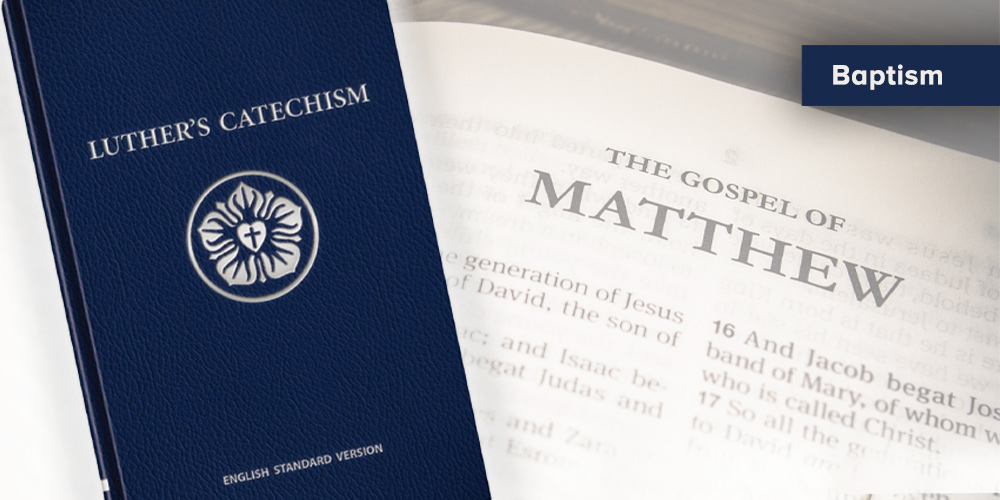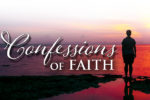 |
“The Bible never says we should baptize babies.” So goes the stale argument against infant baptism.
I like to respond, “And the Bible never says we should commune women, either.”
I don’t remember where I first heard that response, but it’s brilliant. It would be absurd to exclude women from the Lord’s Supper. The collective Scripture on the Lord’s Supper and related biblical truths make it clear that we are to commune repentant believers who recognize the real presence and share the same confession of faith. Gender has nothing to do with it.
Similarly, when we read all the pertinent Scripture about Christ’s institution of Baptism and humanity’s need for the benefits of Baptism, it’s clear that Baptism is for all people.
Age has nothing to do with it.
Where can we find a ready reference of compiled passages on vital teachings like Baptism? The catechism.
The Catechism as a discipleship manual
Since 1529, Luther’s Small Catechism has summarized biblical doctrine for Christ’s church in a concise, orderly, and beautiful way. In teaching the institution of Baptism, Luther wrote:
First: What is Baptism? Baptism is not just plain water, but it is water used by God’s command and connected with God’s Word.
What is that word of God? Christ our Lord says in the last chapter of Matthew, “Go and make disciples of all nations, baptizing them in the name of the Father and of the Son and of the Holy Spirit.”
In the 2017 edition of Luther’s catechism, a series of questions follows Luther’s summaries to study the topic further, such as “306. Why is it important that little children also are baptized?” Bible passages are then listed that answer each of those questions. In this case, Scripture from the inspired writers Luke, David, Paul, John, and Mark follow the passage from Matthew 28:19 quoted above.
The catechism serves as an excellent textbook for parents and pastors to teach us to obey everything that Jesus has commanded (see Matthew 28:20). But its value extends far beyond youth catechism class. It’s a training manual for an entire life of discipleship.
This is why Luther continued to study the catechism after he wrote it and why studying it benefits us greatly. It continually trains us to live life in God’s kingdom.
Matthew as a discipleship manual
How fitting that we conclude this series with the Great Commission from Matthew 28:18-20. Our catechism quotes these verses more than any others. They are found throughout the exposition of all six chief parts. It’s easy to see why. The final recorded words of Jesus from Matthew inform and empower so much of our Christian life today.
Consider how those words must have impacted that second generation of Jewish Christians who used Matthew as their discipleship manual. For them, Jesus’ Great Commission happened relatively recently: The crucified and risen Messiah had just completed his mission. Before he ascended, he directed his disciples to make more disciples across this earth as long as it endured.
Jesus claimed divine authority to rule the universe and thereby empowered, directed, sent, and equipped his church for the mission ahead. He still does that today. Since the task may seem daunting, Jesus closes Matthew’s gospel as he opened it—with the promise of Immanuel: God is present with us as one of us (Matthew 1:23).
“Surely I am with you always, to the very end of the age” (Matthew 28:20, emphasis added).
This is the sixth article in a six-part series about catechism truths found in Matthew’s gospel.
Learn more at forwardinchrist.net/catechism.
Author: James Borgwardt
Volume 110, Number 12
Issue: December 2023







